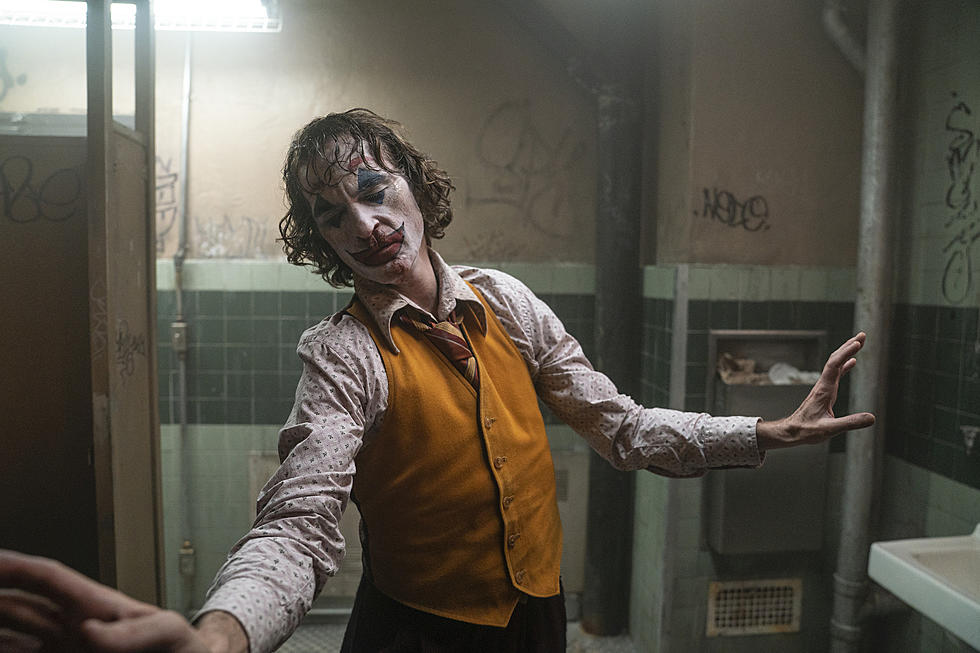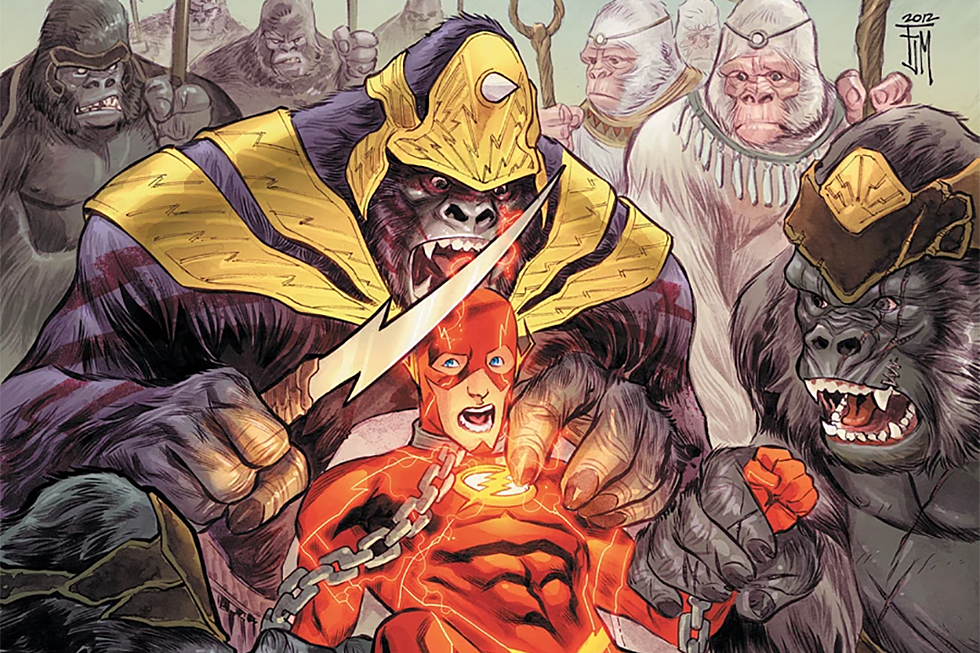![Action Comics #897: Lex Luthor vs. The Joker [Review]](http://townsquare.media/site/622/files/2011/01/act897.jpg?w=980&q=75)
Action Comics #897: Lex Luthor vs. The Joker [Review]

The dynamic between Batman and the Joker has been explored many times throughout the two characters' histories, but there's another character in the DC Universe who presents almost as intriguing a contrast to the Joker's madness: Lex Luthor. Luthor shares the Joker's me-first approach to the world, and his willingness to hurt anyone else so long as it suits his desires, but Luthor is also motivated by a desire for order, a feeling that the world is somehow wrong and that he must therefore use his tremendous talents and resources to fix it.
In Action Comics 897, written by Paul Cornell and drawn by Pete Woods, takes that underlying conflict and contrast between the two villains and crafts a fascination examination of order versus chaos, and the best story between these two characters that I've ever read.As the latest issue of Action opens, Lex arrives at Arkham Asylum on the trail of one of the black spheres, the strange sources of energy he's been chasing since his exposure to Lantern Corps power rings at the end of Blackest Night. And it just so happens this sphere, according to Lex's science staff, is hidden somewhere in the Joker's cell. What follows is a prolonged back and forth between Lex and the Joker, as Lex attempts to find out how much the madman knows and is forced to play along with the Joker's mind games in order to walk out of Arkham with what he seeks.
In the course of a single issue, Cornell and Woods take the Joker through a range of emotions and behaviors, from playful to violent to self-analytically introspective to philosophical to frightened. All while keeping the sense of someone who changes his mind from moment to moment, possibly because he's seized upon a new whim, possibly because it's all part of an elaborate plan, possibly both at once. It could easily have been too much, but it worked perfectly. And having Lex as a counterpoint, as someone clearly frustrated with the nonsense he has to put up with, but who must keep cool and hold a straight face because there's no other way to get what he wants, gives each character an ideal foil to play against.

It's tricky to have Batman play off the Joker in the same way as Lex does here because, generally speaking, what Batman wants in regards to the Joker can usually be solved with violence followed by police transportation to Arkham. Batman's rarely in a situation where he has to actually talk to the Joker for twenty pages in order to get what he's after. Sure, Lex can punch the Joker in the face. And he does. But it doesn't get him any closer to finding out what the Joker knows about the spheres.
There isn't the same inherently adversarial relationship between the two men; they've worked together in the past, there's familiarity mixed with respect mixed with a hint of contempt between them, and so they're able to let their conversation take tangents into each man's view of the universe, whether it can be made better, whether it should be, and whether there's any meaning to it at all. I genuinely get a sense that the conversation the Joker's having with Lex here isn't something he could have with any other character in the DC Universe. And watching it all unfold and seeing the twists and turns it takes is enthralling.
If that's all this issue was -- a meeting of twisted minds and an exploration of the philosophies that have shaped them -- it would be enough, but it also continues to drive the central plot of the series. There's the implication that Lex's recent conversation with Death may not have been as private as he thought, casting its significance in a new light. And there's foreshadowing of what's to come. The Joker himself is disturbed by what the sphere has shown him, and so it's safe to guess that Lex's search isn't going to lead him anywhere pleasant. And then significant questions are raised about the motivation behind Luthor's seemingly loyal robot version of Lois Lane. The series lets you know it's keeping some tricks up its sleeves without showing off too many of them just yet.
Cornell and Woods continue to do excellent work with the Luthor arc on Action. Woods' Joker here is superb, his art an essential part of the character's sudden turns in mood. Drastic changes in lighting and expressions from panel to panel drive home the Joker's instability, and I kind of love how his scarred smile loops in a handlebar mustache-like pattern at each end. Cornell's story is powerful because it's so simply staged. For the most part it's two men sitting across from one another in a single room with no decorations and no furniture other than a chair with two tables. This comic could easily be staged as a play, and would be pretty entertaining if it was.
But don't sit around waiting for that to happen, because it'd be a shame if you were to miss this one.
More From ComicsAlliance



![Ryan Browne And Pete Woods On Their Superhero Satire ‘Project Superpowers: Hero Killers’ [Interview]](http://townsquare.media/site/622/files/2017/03/Hero-Killers-Featured.png?w=980&q=75)

![Exclusive: Dan Jurgens And Peter J. Tomasi Reveal The Consequences Of ‘Superman Reborn’ [Interview]](http://townsquare.media/site/622/files/2017/03/AC_976_18_000_COLOR.png?w=980&q=75)
![The Truth About Superman Is Revealed In ‘Action Comics’ #976 [Exclusive Preview]](http://townsquare.media/site/622/files/2017/03/AC_976_0.png?w=980&q=75)
![The Blossom Twins And Pete Woods Wreak Havoc On Riverdale In ‘Archie’ #18 [Interview]](http://townsquare.media/site/622/files/2017/03/Archie00.jpg?w=980&q=75)

